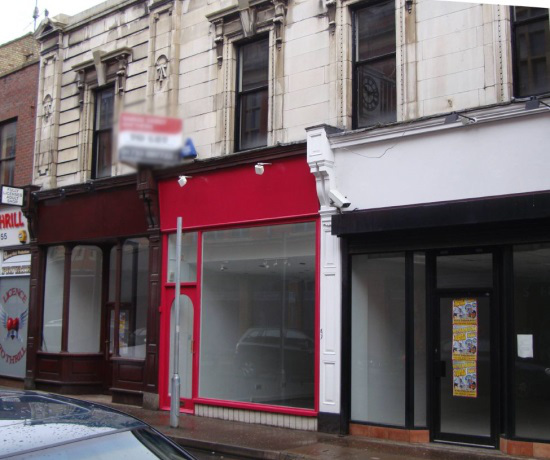Last week, Movehut revealed that future plans for the high street are causing controversy between local authorities and the government. Under new legislation, empty shop units on the high street could be turned into affordable housing without the requisite planning permission, which many councils believe is a “further erosion of their powers.”

However, new figures demonstrate that the government could well have a greater problem on their hands than fielding the calls of irate council leaders if the proposal goes through. Data suggests that the UK economy could lose up to £1 billion in business rates over the next decade if only 25 per cent of empty shops in Britain are converted into residential premises.
Of course, this could cause significant issues for local councils and could see communities having to cut back on services which are presently offered as standard. This could particularly affect areas such as Stockport and Nottingham, which have some of the highest vacancy rates in the country.
Bill Grimsey, who is currently compiling a report into the future of the high street and as such was responsible for the research, believes that the results will prove to be yet another sticking point for local authorities.
He says; “We need to start re-designing high streets around community needs, but councils won’t want to convert empty shops into homes if they think they’ll lose out on the business rates income.”
Gerald Eve’s head of rating, Jerry Schurder, goes one step further, claiming the plans would create “havoc” when it comes to the finances of the nation’s councils.
He continues; “Making conversions easier could have a very positive effect on towns that have seen a permanent contraction in the retail sector, but only a foolish council would use its powers to reduce its income base.”
The data suggests that, although vacancy rates would indeed drop, councils could stand to lose £103 million per annum should 10,000 of Britain’s 40,000 empty stores become residences. This is because business rates are, at present, significantly higher than council tax.
However, the British Property Foundation (BPF) has largely welcomed the controversial proposals, claiming that an increase in available residential space in town centres would “breathe life” into high streets. It believes that the old view of the high street is now obsolete, and that utilising space for housing and community requirements such as doctor’s surgeries would be the best step forward in bringing the high street into the 21st century.
Chief executive of the BPF, Liz Peace, says; “Retail to residential conversions could be an important step in breathing life into our high streets, and we would very much encourage a flexible approach, particularly in areas with increasingly obsolescent retail stock outside the retail core that is unlikely to be brought back into retail use.
“We’re particularly pleased that the government has listened to industry concerns and confirmed it will be up to local authorities to define their core retail areas, rather than a nationally set red line approach, and that there will be exemptions for conservation areas and national parks.”
Do you think the government should press ahead with conversion legislation, or will the plan have a detrimental effect upon the quality of living for local communities thanks to the cut in council income?
Previous Post
Grimsey Dismisses Portas Business Rates Proposal